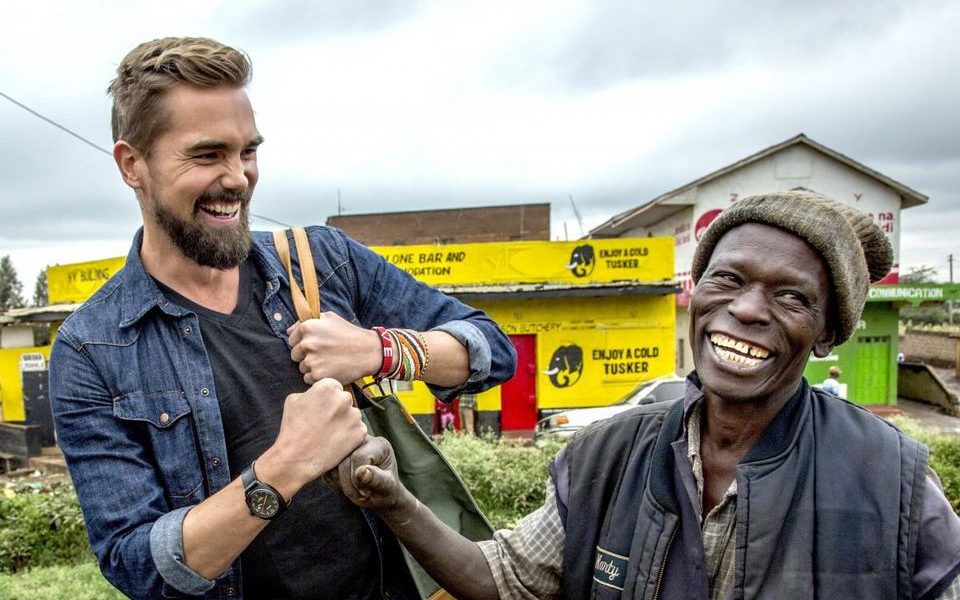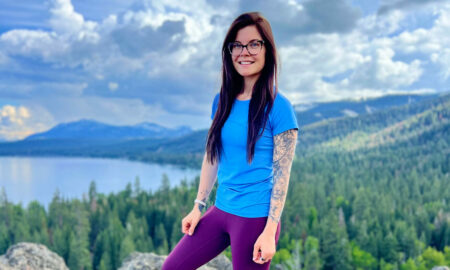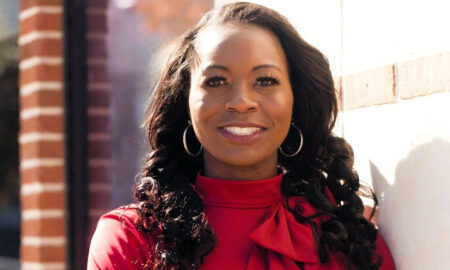

Today we’d like to introduce you to Zane Wilemon.
Zane, please kick things off for us by telling us about yourself and your journey so far.
A long time ago, back in the early 2000’s when I was still a student, I bought a one-way ticket to Kenya. I was studying in a seminary there and met an extremely charismatic and passionate pastor named Jeremiah. We started meeting every week to talk about social empowerment, economic development, the problems with local charities, and we ended up founding a charity that invested deeply in development projects in one community, Maai Mahiu.
At first, we operated just like normal non-profit charity. But over time, that was unsustainable. We were dependent on our donors, and the people we worked with were dependent on us. It could all just fall apart at any moment.
So in 2011, we got a dozen manual Singer sewing machines and rented a 15 foot by 15 foot room in the center of Maai Mahiu and hired nine women whose children were enrolled in our school for special needs — these were our first “Maker Mums”. Our first products were simple and easy to master: shopping bags, coffee sleeves, bandanas, and coasters. Soon we purchased 11 acres of land on the outskirts of Maai Mahiu, rehabilitated it with native trees, plants and landscaping, and built our Maker Mum Sewing Studio.
In order to grow and become a sustainable business, we’ve had to learn new skills, design more sophisticated products, and source better materials. We started making handbags and bracelets, then shoes. It’s about craftsmanship and quality. Now that our Maker Mums are producing really beautiful products, we know that they are earning their income and we as an organization are earning our revenue as well. It breaks the cycle of dependency.
We’re now the largest employer in town, and our Maker Mums are really respected and hold their heads high. They’ve got health insurance and job security, and most of them have bought homes and land in a town where almost everybody rents. We sell bags and shoes, but I like to think we’re in the business of empowered employment.
We’d love to hear more about your work and what you are currently focused on. What else should we know?
We make bracelets, shoes, and bags. Everything is made by hand, and most of our artisans are mothers of children with special needs. We source most of our materials locally, and we’re always careful to source from ethical suppliers who treat their employees with respect and care.
I’d say our style is casual and colorful, with some Kenyan flair. The head of our design and product development team is a young woman from a small town in Kenya who studied fashion in Florence and worked there for several years in jewelry design and production. I think you see that blend of a sort of elegant Italian sensibility but with a distinctively African twist.
Our message is that every transaction has the power to do something good for the world. Everybody has to buy shoes, and that transaction is an opportunity to connect with the product’s makers and to feel good about it.
But at the end of the day, I don’t want our customers to buy our products just because of the backstory. We stand for empowerment, our values are the core of who we are as an organization, but if our shoes and bags aren’t well-made and attractive then we’re not going to grow and sustain our business.
Artists rarely, if ever pursue art for the money. Nonetheless, we all have bills and responsibilities and many aspiring artists are discouraged from pursuing art due to financial reasons. Any advice or thoughts you’d like to share with prospective artists?
I never would have been able to do this alone. I needed a team of people, both in Kenya and in the US, to help me stay engaged and inspired, and to share the burden of fundraising and selling. I’d recommend that anybody trying to make it in a challenging artistic path, whether that be fine arts or a craft, find a group of supportive, like-minded creators with whom you can collaborate, not just in an artistic sense but in terms of sharing the burden for finance and administration. We’re all stronger as a group.
What’s the best way for someone to check out your work and provide support?
Everybody can easily find us online at http://www.ubuntu.life. We put up new products there pretty regularly, and all our sales help us support our Maker Mums and the charitable work we do in Kenya. We also do pop-ups pretty regularly, with our biggest event in Texas each year being our presence at the Austin City Limits music festival. We love it when people stop by to say “hi” and see our latest creations!
We’ve also got two brick-and-mortar locations in Kenya and in Austin, where our US team is based. We love to welcome visitors to our workshop and store in Maai Mahiu, Kenya — we’re located on the road from Nairobi to the Maasai Mara, so we get lots of tourists coming through. But for our friends from Houston, that’s a bit of a trek. And our Austin location, in the Bouldin neighborhood of South Austin, might not feel much closer. But please feel free to drop on by!
Contact Info:
- Address: 908 W Mary St
Austin, TX 78704 - Website: www.ubuntu.life
- Phone: (512) 769-4127
- Email: holland.angel@ubuntu.life
- Instagram: @ubuntu.life
- Facebook: https://www.facebook.com/ubuntulifekenya
- Twitter: https://twitter.com/ubuntulifekenya
- Other: https://www.youtube.com/user/ComfortTheChildren











 Image Credit:
Image Credit:
Photos by Ubuntu Life
Suggest a story: VoyageHouston is built on recommendations from the community; it’s how we uncover hidden gems, so if you or someone you know deserves recognition please let us know here.

















